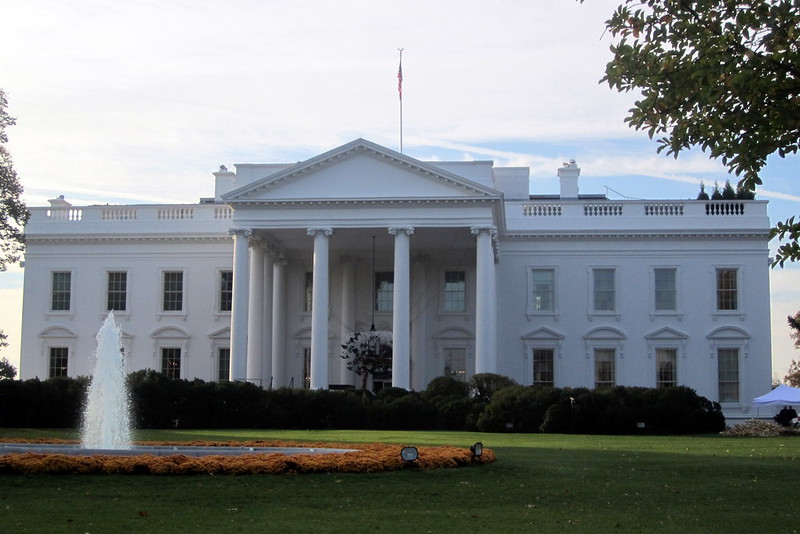Hip hop artists Redman and M-1 of dead prez are joining Students for Sensible Drug Policy (SSDP), the Last Prisoner Project and other advocates for a rally at the White House on October 24. As part of an ongoing campaign, they’re calling on President Biden to free all people incarcerated for federal cannabis convictions.
On October 6, Biden announced pardons for all federal convictions for simple marijuana possession; further possession cases won’t be prosecuted. The high-profile action had major symbolic value. Biden also promised a review of marijuana’s scheduling under the Controlled Substances Act, and urged state governors to issue their own pardons. But the immediate practical impact of Biden’s pardons is very limited.
“The pardons President Biden issued will not release a single individual from incarceration.”
“It is objectively the most progressive action a sitting president has taken on cannabis,” Sarah Gersten, executive director of the Last Prisoner Project, told Filter. “However, it does fall far short of what we’re asking him to do and releasing anyone incarcerated for a nonviolent cannabis offense. The pardons President Biden issued will not release a single individual from incarceration.”
The simple reason for that is no one is currently in federal custody for marijuana possession alone, as White House officials confirmed. People convicted on other federal marijuana charges—including cultivation, intent to distribute and “trafficking”—will meanwhile remain behind bars. That’s what the current campaign wants to change.
“It’s been incredibly inspiring to see so much support from the general public, the advocacy community and the hip hop community for focusing on releasing cannabis prisoners,” Jason Ortiz, executive director of SSDP, told Filter. “There’s folks that have friends and families that are incarcerated.”
Ortiz said there are no reliable data on exactly how many people are in federal prison for non-possession marijuana convictions alone. But the campaign estimates that this applies to at least 2,800 currently incarcerated people.
“All the 2,800 prisoners were either cultivation or trafficking.”
“Biden’s not released anyone from prison, in part because we have this over stigmatization of ‘drug dealers’ or people who sell drugs,” Ortiz said. “When it comes to cannabis crimes, all the 2,800 prisoners were either cultivation or trafficking.”
As an example, Ortiz shared the story of one man, Edwin Rubis. According to a Change.org petition created by his family, he was charged with conspiracy to distribute marijuana, after another group of sellers cooperated with prosecutors to testify against him. Rubis received a 40-year sentence—despite the fact he was found with no drugs, guns or money. He has been in prison since 1999, and will stay there until 2035 as things stand.
“A ‘pardon’ … shows forgiveness of a crime,” Gersten said. “What we are asking the president to do is commutations, which would actually reduce someone’s sentence to time served, which would allow individuals to be released.”
Despite Biden’s pardons freeing no one, an estimated 6,500 people with prior federal marijuana possession convictions will benefit from reduced discrimination. As the Department of Justice explains, a pardon restores full rights to vote, to hold elected office and to serve on juries. It can also be “helpful in obtaining licenses, bonding, or employment.” But a pardon does not expunge a record (there is no federal statute allowing for expungement), and it could still be found by someone who searches for it.
“It removes certain disabilities,” Gersten said, “like the ability to access federal funds or housing. But it doesn’t actually destroy the record or clear it if someone were to pull it up on a background check.”
However, Biden’s action explicitly excluded undocumented immigrants, stating it “does not apply to individuals who were non-citizens not lawfully present in the United States at the time of their offense.” That’s a shameful move, considering immigrants, including even legal permanent residents, are punished far more harshly for drug possession and other charges—with penalties up to deportation.
The numbers impacted are very significant. According to the US Sentencing Commission, over 90 percent of federal marijuana possession arrests in fiscal year 2013 were made at the US-Mexico border, particularly in Arizona. And of this group, over 94 percent were non-citizens. So Biden cut out literally thousands of people from clemency. (It’s also not the first time he’s done this—his previous executive action banning federal contracts with private prisons excluded undocumented immigrants detained in private facilities.)
At a time when federal legalization feels inevitable, advocates’ frustration at the continued incarceration of thousands is intensifying.
“We’re asking for all federal cannabis prisoners in part because that’s what Biden promised he would do,” Ortiz said.
Biden’s clemency also affects residents of Washington, DC, although Gersten was not able to say how many. Most people in the District who are charged with crimes are prosecuted not by the city but by DC federal prosecutors. That means DC residents, predominantly people of color, are likelier to face federal charges, and to be sent federal prisons far from home if convicted.
Biden’s October 6 action was unprecedented, if long overdue given his campaign pledges, and understandably made headlines. But at a time when federal legalization feels inevitable—bills have been passed in the House; 19 states plus DC have legalized; Arkansas, Maryland, Missouri and the Dakotas are all voting on legalization in November; and the federal scheduling review is under way—advocates’ frustration at the continued incarceration of thousands is intensifying. That’s why they’re taking their call for urgency right to the president’s door.
Photograph by Wally Gobetz via Flickr/Creative Commons 2.0





Show Comments